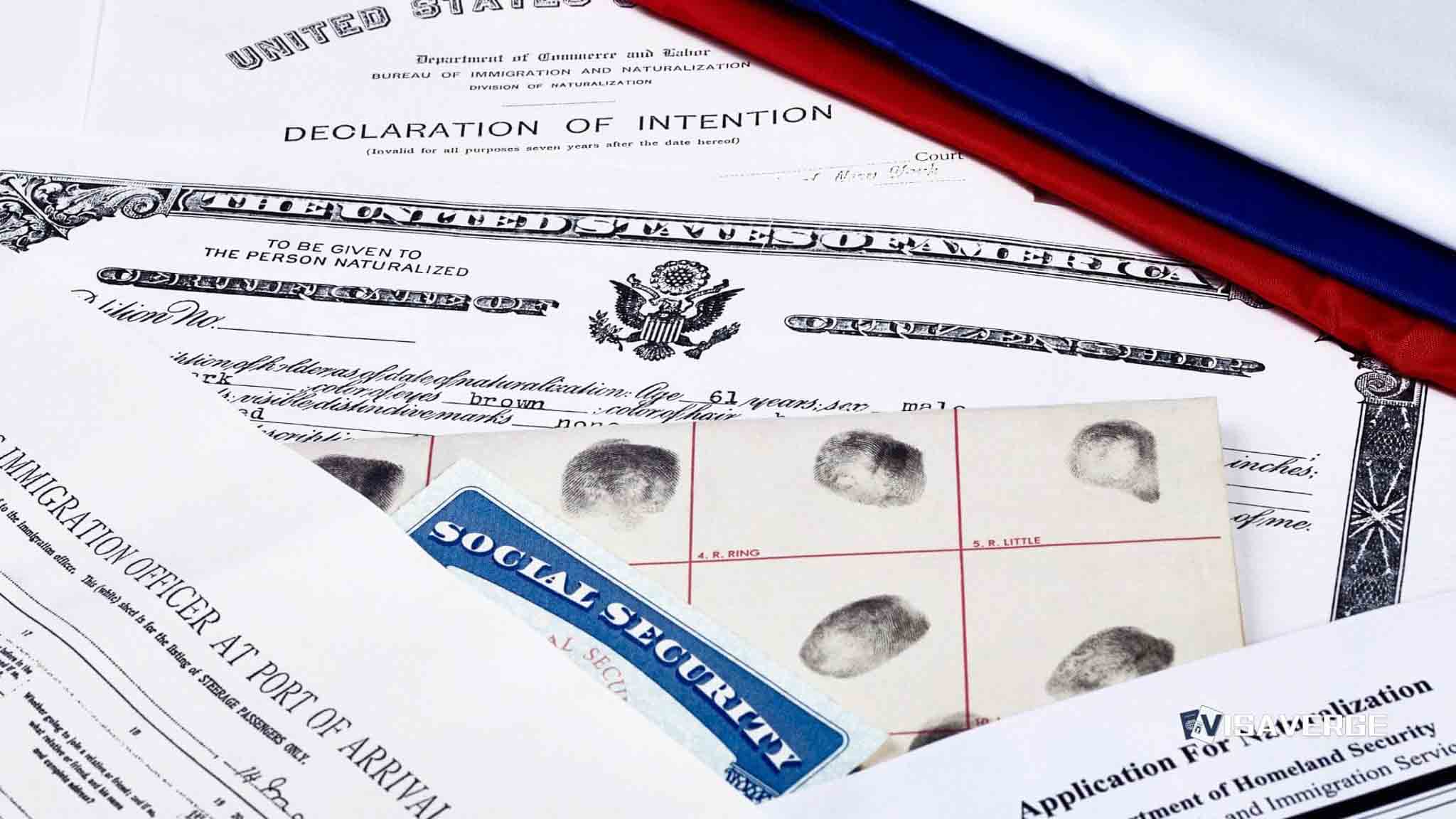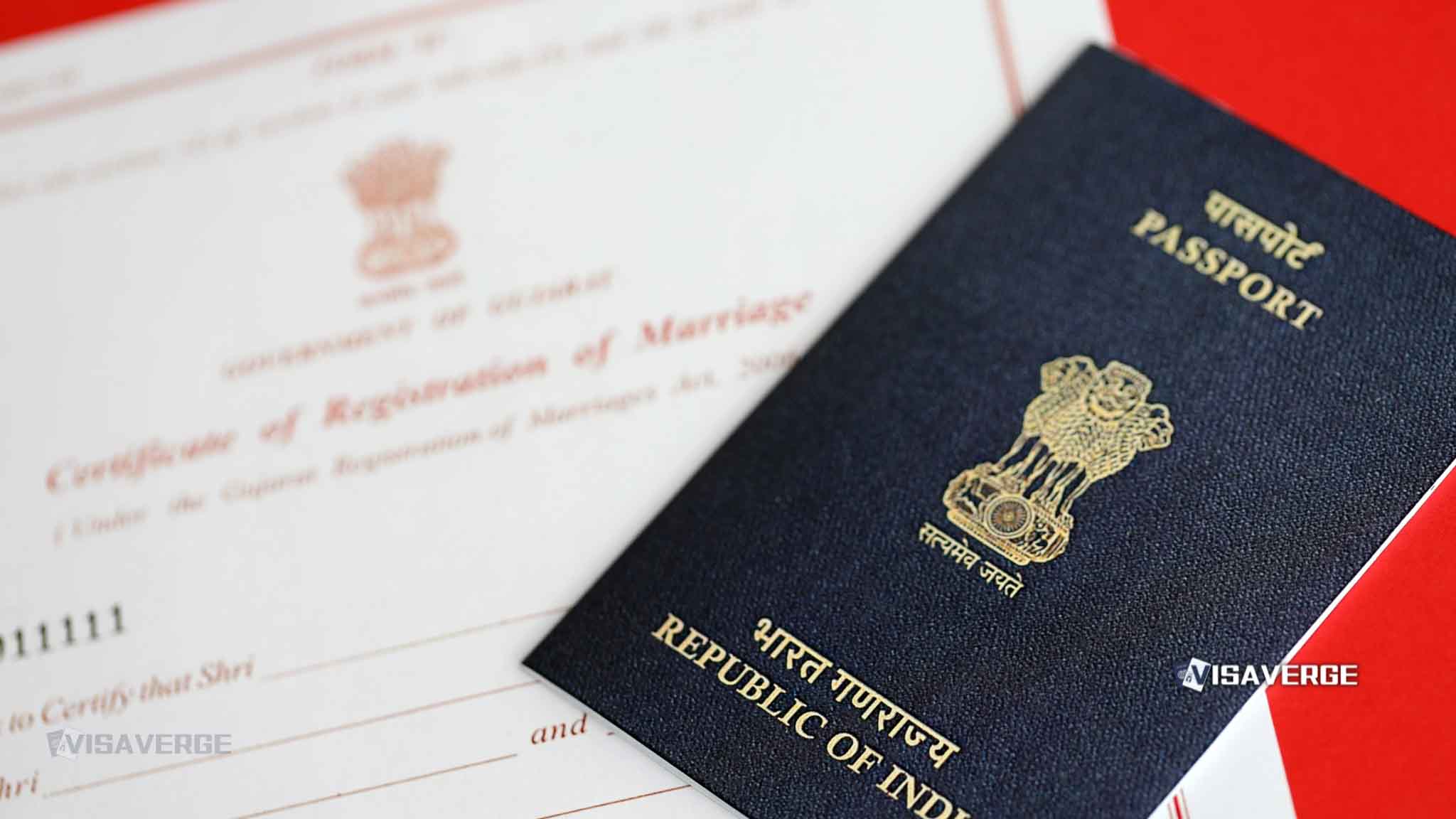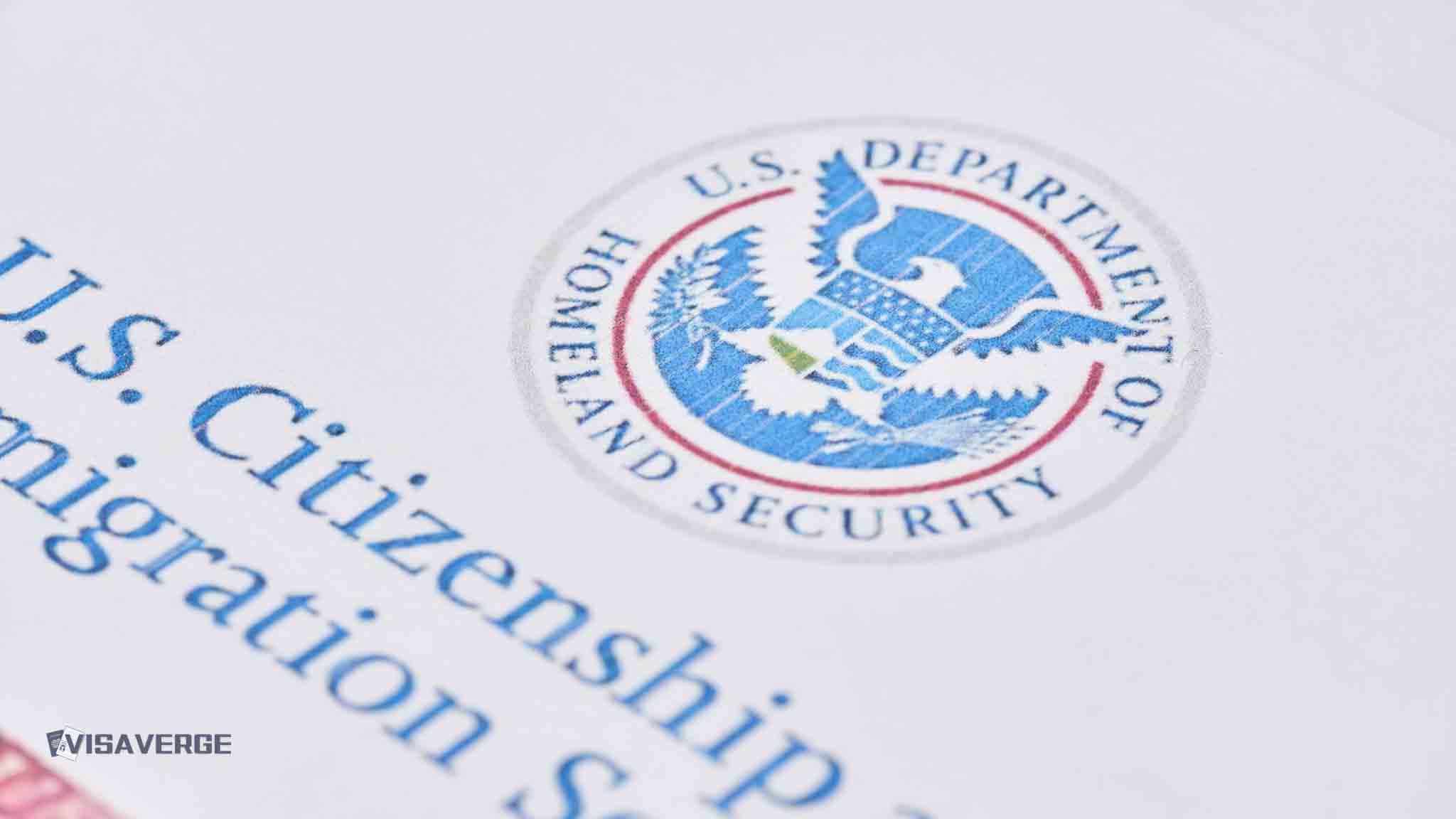USCIS Accomplishes Significant Milestone in FY2023
United States Citizenship and Immigration Services (USCIS) has achieved a groundbreaking accomplishment as documented in the USCIS FY2023 report. For the first time in a decade, the agency has successfully reduced its extensive case backlog—an achievement that is particularly notable amidst the increasing complexities of the immigration landscape.

A Leap Forward in Backlog Reduction
The fiscal year 2023 has been pivotal for USCIS, with a staggering 10.9 million filings received and a record-setting completion of 10 million pending cases. In a compelling turn of events, the backlog saw a 15% decrease, signaling a shift toward heightened efficiency within USCIS operations.
Of special note are the over 878,500 new U.S. citizens who were eagerly awaiting the Oath of Allegiance, a testament to the agency’s targeted efforts towards backlog reduction. Within this cohort, 12,000 military members gained citizenship, thus eradicating the naturalization backlog. Moreover, the median processing time for naturalization applications plummeted to just 6.1 months, a significant reduction from the previous 10.5 months.
By the end of FY2023, the net backlog—defined as cases pending beyond the target processing times—had been reduced by over 760,000 to a total of 4.3 million cases, down from 5 million cases at the end of FY2022. It’s a clear indication that USCIS backlog reduction strategies are making a tangible difference.
Enhancements to the Customer Experience
USCIS has introduced new technology advances designed to streamline and enhance the customer experience. Among such advances, the self-service online platform for rescheduling biometrics appointments boasted over 33,000 utilizations in FY2023. USCIS also launched an enterprise system for changing addresses, through which more than 430,000 address changes were submitted by December 2023. Anticipated results include a forecasted 30% drop, equivalent to 1.5 million, in annual calls to the USCIS Contact Center.
Furthermore, USCIS’s online platform facilitated over 16,000 field office appointment requests, while the introduction of a new 1-800 number offered a more predictable call-back timeframe, considerably reducing missed calls.
Progress in Employment-Based Immigration
A highlight of the USCIS FY2023 report includes the issuance of over 192,000 employment-based immigration visas—an impressive number that exceeds pre-pandemic annual results. For the second consecutive year, USCIS ensured no employment-based visas went unused. Adjustments included:
- Increasing the maximum validity period for Employment Authorization Documents to five years for certain applicants.
- Providing clarifications on the International Entrepreneur Rule, EB-1 Extraordinary Ability visa, and waivers for the two-year foreign residence requirement for J-1 visas.
- Eliminating the biometrics fee and appointment requirement for changing or extending nonimmigrant status.
- Updating the Child Status Protection Act to safeguard child beneficiaries from aging out of eligibility to apply for permanent residence with their families.
Employment-based immigration updates for 2023 signify a crucial step towards accommodating the needs of the U.S. economy and workforce.
Humanitarian Initiatives Take Center Stage
Reflective of its commitment to global humanitarian efforts, USCIS interviewed more than 100,000 refugee applicants—a number remarkably doubling the completed interviews in the previous fiscal year. Over 60,000 refugees found a new home in the U.S. within this period. Meanwhile, USCIS completed over 52,000 asylum cases, also addressing those aligned with the Afghan alliance, and executed a record 146,000 credible and reasonable fear screenings for asylum seekers in FY2023.
Close to 238,000 individuals benefitted from the CHNV (Cubans, Haitians, Nicaraguans, and Venezuelans) parole program in FY2023, with additional family reunification processes for those from Columbia, El Salvador, Guatemala, and Honduras. Efforts for Cubans and Haitians saw modernization, and the Uniting for Ukraine initiative welcomed over 150,000 Ukrainian nationals and their relatives.
The inception of the Humanitarian, Adjustment, Removing Conditions, and Travel Documents (HART) Service Center, established for the vulnerable populations’ case adjudication, saw nearly a 90% increase in staffing, showcasing the agency’s commitment to humanitarian causes.
Anticipating the Future
Looking to sustain this momentum into FY2024, USCIS aims to further trim processing times, with a key focus on reducing the median processing time to 30 days for EAD applications filed via the CBP One mobile app or through the CHNV process. Additional strategies are in play to elevate the efficiency and integrity of the H-1B program, as well as ensuring the optimal usage of all available visas and preserving naturalization processing timelines.
These initiatives represent the ongoing commitment of USCIS to facilitate a fair, efficient, and humane immigration system. For more detailed information on USCIS policies and updates, interested parties are encouraged to visit the official USCIS website and keep abreast of the latest developments in immigration policy and practice.
Learn Today:
Glossary
USCIS (United States Citizenship and Immigration Services)
The United States Citizenship and Immigration Services is a federal agency responsible for overseeing lawful immigration to the United States. USCIS processes applications for immigration benefits, such as green cards, citizenship, and visas.
Case Backlog
The backlog refers to the number of pending immigration cases awaiting processing by USCIS. It indicates the volume of applications and petitions that need to be reviewed, affecting the processing times for individuals seeking immigration benefits.
Naturalization
Naturalization is the process through which a foreign national becomes a citizen of the United States. It involves fulfilling eligibility requirements, including residency, language proficiency, and passing a civics and English test.
Oath of Allegiance
The Oath of Allegiance is a solemn declaration taken by individuals during the naturalization ceremony, affirming their loyalty and commitment to the United States. It is a final step in the naturalization process.
Employment Authorization Document (EAD)
An Employment Authorization Document is a government-issued document that allows non-citizens to legally work in the United States for a specific period. It is commonly obtained by individuals with pending immigration status or asylees.
Humanitarian Programs
Humanitarian initiatives are programs designed to assist individuals fleeing persecution, violence, or conflict in their home countries. These initiatives include refugee resettlement, asylum for individuals fleeing persecution, and parole programs for vulnerable populations.
Biometrics
Biometrics refer to the unique physical characteristics used for identification purposes, such as fingerprints, facial recognition, and retinal scans. In the context of immigration, biometrics are collected for background checks and identity verification.
EAD Application
The EAD application is the process of requesting an Employment Authorization Document from USCIS to obtain legal authorization to work in the United States. Applicants must meet specific eligibility criteria and provide supporting documentation.
H-1B Program
The H-1B program allows U.S. employers to sponsor foreign workers in specialty occupations that require specialized knowledge or expertise. It is a popular visa category for skilled professionals in fields like technology, engineering, and healthcare.
Asylum
Asylum is a form of protection granted to individuals already in the United States or arriving at the border who demonstrate a well-founded fear of persecution based on race, religion, nationality, political opinion, or membership in a particular social group in their home country.
Parole Program
The parole program permits individuals to enter or remain in the United States for urgent humanitarian reasons or significant public benefit. It is often granted to individuals who do not qualify for refugee status but still need protection.
CHNV Process
The CHNV process refers to Cubans, Haitians, Nicaraguans, and Venezuelans parole program, aimed at providing humanitarian parole to individuals from these countries facing humanitarian crises or political instability.
Ombudsman
The USCIS Ombudsman is an independent and impartial office within USCIS that helps resolve individual case problems, improves the agency’s processes, and addresses issues related to immigration benefits and services.
Naturalization Processing
Naturalization processing involves the examination and approval of applications for U.S. citizenship by USCIS. It includes background checks, interviews, language, and civics tests to ensure eligibility criteria are met before citizenship is granted.
USCIS has made significant strides in reducing backlogs and enhancing customer experiences in FY2023, showcasing a commitment to efficiency and humanitarian initiatives. For more on immigration policies and updates, explore visaverge.com. Stay informed and stay empowered!
This Article In A Nutshell:
USCIS made significant progress in reducing its backlog in FY2023, receiving 10.9 million filings and completing 10 million cases, leading to a 15% backlog decrease. Noteworthy achievements include facilitating 878,500 new citizens, advancing customer service tech, and issuing 192,000 employment-based visas. USCIS continues to enhance humanitarian efforts worldwide.













